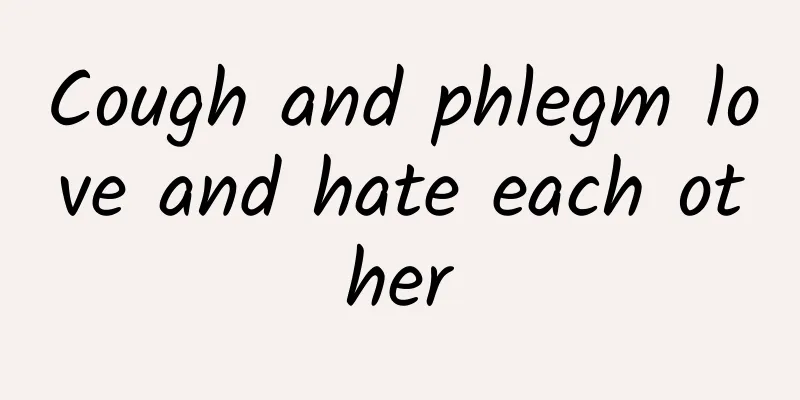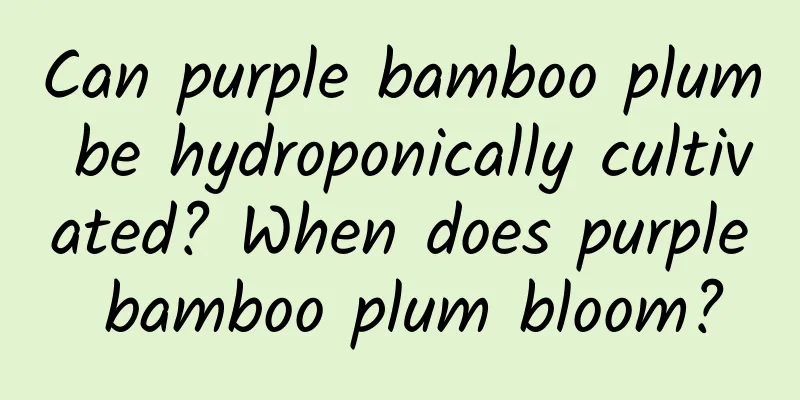Cough and phlegm love and hate each other

|
A young mother anxiously took her five-month-old baby to the hospital for treatment. The baby had a fever, and could hear a clear "snoring" sound when breathing. Sometimes he spit up milk, which made the mother feel distressed. The doctor diagnosed pneumonia and told her that the "snoring" sound was due to phlegm. But what should she do if such a young baby can't cough or spit? The young mother was worried. Coughing is the body's normal defense mechanism, which helps to clear respiratory secretions or foreign objects. A cough with phlegm is a wet cough, while a cough without phlegm is a dry cough. Coughing helps to expel phlegm, so children should be encouraged to cough, and expectorants are generally not used. Expectorants are only needed for infants and young children who cannot cough or have thick phlegm that is difficult to cough up. Finding the cause of the cough and eliminating the cause is the key. For example, in the case of bacterial acute bronchitis or pneumonia, antibiotics can be used to inhibit or kill bacteria, and the phlegm will naturally disappear. 1. What are the commonly used expectorants? 2. Nebulization to remove phlegm Nebulizer inhalation is a commonly used method of administration that is particularly suitable for children. The younger the child, the greater the advantage. Commonly used nebulizer inhalation expectorants are mainly mucolytics. Mucolytics used in pediatrics include: ambroxol hydrochloride and acetylcysteine. Studies have shown that the combination of fast-acting β2-receptor agonists such as salbutamol and terbutaline with ambroxol has a better expectorant effect than ambroxol alone. 3. Do you need cough suppressants for wet cough? Antitussives are divided into central antitussives and peripheral antitussives. Pholcodine and dextromethorphan, commonly used by children, are central antitussives suitable for dry coughs, and pholcodine has a weaker addiction. Codeine is contraindicated for children with various coughs. It is not recommended to use antitussives for children with chronic cough, especially before the cause is clear. Improper use may cause serious adverse reactions. Wet coughs should be treated with expectorants. References [1] Asthma Group, Chinese Society of Respiratory Diseases. Guidelines for the diagnosis and treatment of cough (2009 edition) [J]. Chinese Journal of Tuberculosis and Respiratory Diseases, 2009, 32(6): 407-413. [2] Hong Jianguo, Chen Qiang, Chen Zhimin. Expert consensus on nebulized inhalation treatment of common respiratory diseases in children [J]. Chinese Journal of Practical Pediatrics, 2012, 27(4): 265-269. [3] Chinese Medical Association Pediatrics Branch Respiratory Group Chronic Cough Collaboration Group, Editorial Committee of Chinese Journal of Pediatrics. Guidelines for the diagnosis and treatment of chronic cough in Chinese children (revised in 2013) [J]. Chinese Journal of Pediatrics, 2014, 52(3): 184-188. |
<<: What medicine can kill all wasps (they have weak resistance to pyrethroids)
>>: Your baby has a fever. Have you chosen the right method to reduce fever?
Recommend
Low blood pressure is common among women. Does it have any impact on health? What should we do?
A friend asked Huazi why he always talked about h...
How long should I take the postpartum recovery granules?
How long should I take the postpartum recovery gr...
Will I still have my period if I have an ectopic pregnancy?
If an ectopic pregnancy has occurred, menstruatio...
What are the items in the routine leukocyte examination of female leucorrhea?
Routine examination of leucorrhea can be said to ...
What disease causes pain on the right side of a girl’s waist?
If our work requires long periods of sitting, we ...
Why is my menstrual period dark and light?
Every woman has her own menstrual cycle, but beca...
Drink a cup of hot milk tea and eat hundreds of billions of microplastics! Microplastics that threaten health are everywhere, and we need to deal with them in this way
Have you noticed that there are more and more pla...
The menstrual period is over and there is blood again after 5 days
Women have their periods every month, and there i...
One picture to understand | Beijing releases cancer monitoring data, who is the "number one killer"?
Editor/Ding Lin Art Editor/Lancheng New Media Edi...
Clinical staging of cervical cancer
Cervical cancer is a common disease. Maybe everyo...
What to do if your calf hurts during menstruation
During women's menstrual period, many problem...
What are the reactions during menopause?
When women reach middle age, they will enter meno...
Is Mabaloxavir, the “miracle flu drug” that costs more than 300 yuan per box, really worth taking?
Recently, influenza has been prevalent in many pl...
Can I take a plane when I'm pregnant?
Airports have become very common in modern daily ...
What are the small particles around the nipples?
Good health is the goal that people pursue. Only ...









